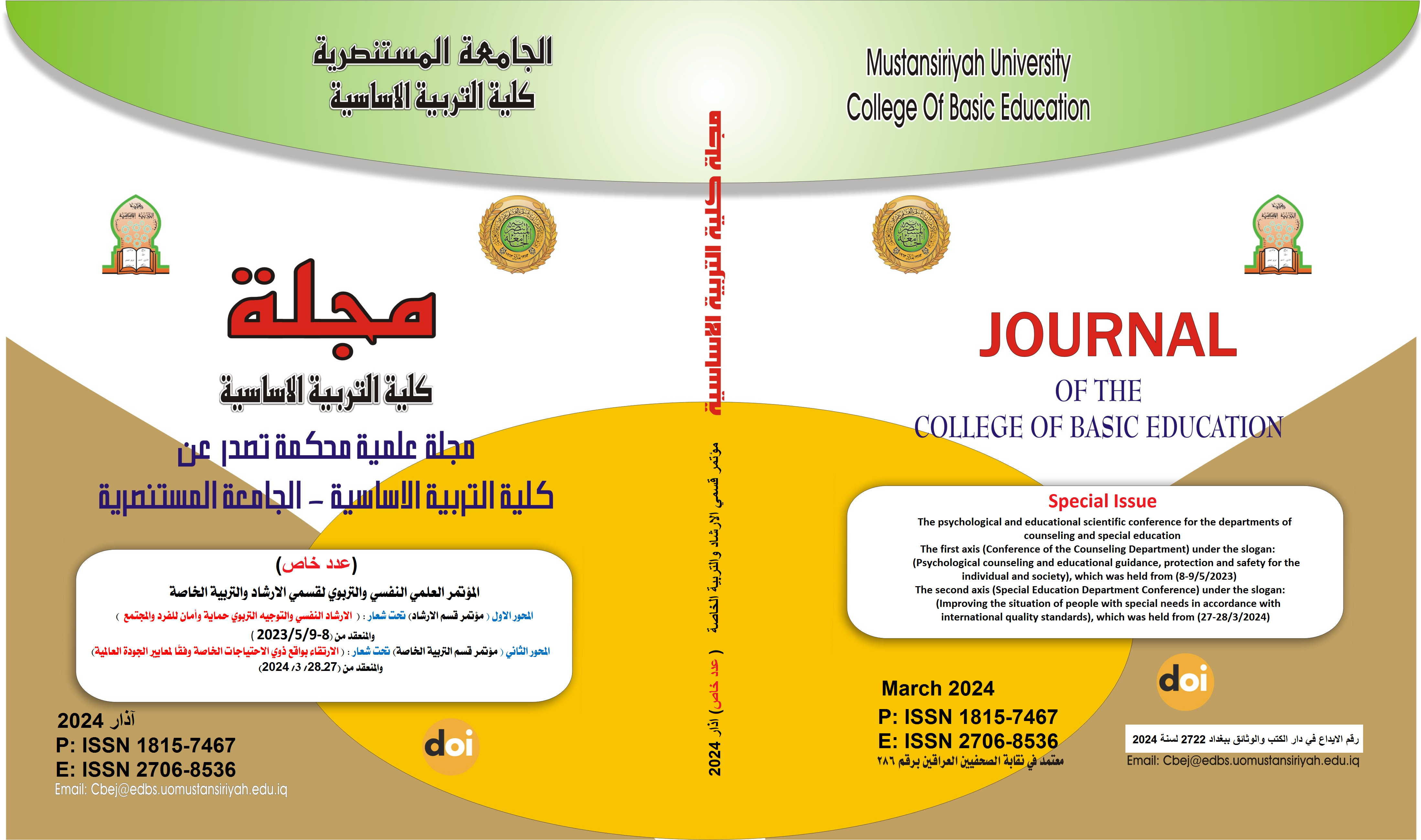الفطام النفسي لدى طلبة الجامعة
Main Article Content
Abstract
The present article aims to determine how psychological weaning from parents is more necessary and important, especially for adolescences, as one of the dimensions of uniqueness for individual self-reliance. This article also draws attention to the difficulty and the importance of parents' role in enhancing individual self-reliance so that the adolescences can adapt to the world around them.
A study such as this, will reveal the importance of weaning appears in adolescence, as it is a transition phase from a child who depends entirely on others (adults) to an independent adult who is self-sufficient, and there is no doubt that this requires achieving a new consensus imposed by the necessities of distinguishing between the behavior of the child and the behavior of adults in the society. The process of transition from child to adult can be recognized as difficult. From a physical perspective, adolescence is a developmental period characterized by complex changes both mentally and physically and can be divided in two phases: early and late adolescence.
During the period of adolescence, the process of transition may be lengthened or shortened depending on the relationship of the adolescent with his/ her parents especially (his/ her mother), although all children, wherever they are undergoing the biological transformations that accompany this transformation, are not typical because their appearance is related in one way or another to the parenting relationship in childhood. So, the stage of adolescence is the stage of determining the identity of the individual. Adolescence is an important period in humans ‘life, when the opportunity for good health and the foundation for future patterns are established.
A number of researchers and psychologists have different points of view in this respect. For instance, Stanley Hall describes that psychological weaning is a phase of psychological crises, characterized by suffering, frustration, conflict, anxiety, and compatibility difficulties. The aims of this research are to identify the level of psychological weaning among university students. The significance of the differences in psychological weaning depending on the gender variable.
The research sample was chosen by a simple, equal-level random method of ( ) for the second and fourth stages of the college students. The researcher adopted the Kazem scale (2014) and it consists of (34) items and the alternatives are (apply to me a lot and are given (4) degrees, and they apply to me sometimes (3) scores are given, and they apply to me slightly and give (2) two grades, which do not apply to me at all and are given (1) degree in a row. The psychometric characteristics of the scale were extracted. The results showed that university students have a low level of psychological weaning, and there were no significant differences between male and female students at the university relate to the psychological weaning process. A statistical data according to the gender variable was collected. In light of this, many recommendations and proposals have been made as a result of this study.
Article Details

This work is licensed under a Creative Commons Attribution-ShareAlike 4.0 International License.
